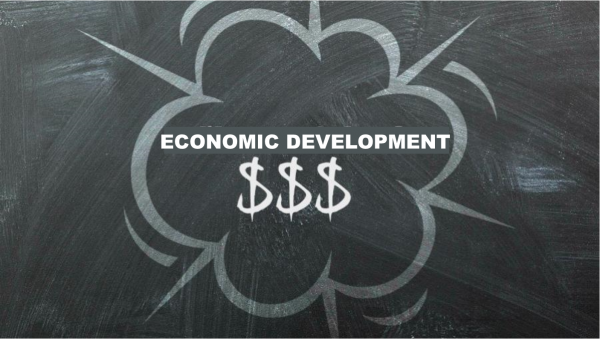Independent Analysis Sought for State's Economic Incentive Programs
/Timing is everything. Just days after the Yankee Institute for Public Policy reported that a federal grand jury has indicted a former Vernon resident for using a fake pita company to fraudulently obtain $3 million, including $400,000 from the State of Connecticut, the state legislature held a public hearing on a proposal designed to enhance Connecticut’s analysis of the efficiency and effectiveness of the state’s economic development investments.
State Comptroller Kevin Lembo, joined by a broad coalition of open government advocates, testified in support of the legislation. “Connecticut can and should be one of the most economically competitive states in the nation – but that can only happen if we adopt best practice in how we analyze the success and failures of our economic development programs,” Lembo said.
“The state provides hundreds of millions of dollars in economic incentive programs to Connecticut businesses every year for the purpose of advancing economic development and job creation,” Lembo said. “The state owes it to businesses and all taxpayers to fully analyze the return on investment that these sizable and important programs actually deliver in order to assess whether such resources are fulfilling their intended purpose or, if not, whether state funds would be better deployed to other economic development or infrastructure investments.
The proposal, House Bill 7316, would improve how Connecticut analyzes the success and failures of its economic development investments in several ways, according to the Comptroller’s Office. It will streamline the reporting requirements, while expanding the scope of reporting to include all business assistance and incentive programs. It will subject business assistance and incentive programs to performance reviews by the Auditors of Public Accounts and require the Auditors to review the analysis and reporting performed by DECD on such programs – providing necessary independent oversight.
Lembo pointed out that “Connecticut is now one of only two states in the nation where the success of economic development programs is analyzed by the same agency that administers the programs. An unbiased assessment of the performance and administration of these programs has in other states resulted in opportunities for savings.
The Comptroller noted that his office has worked with both the Auditors of Public Accounts and the Department of Economic and Community Development, to “come to mutual agreement on the bill’s language.” The legislation would also require specific legislative committees to hold public hearings to discuss the results of the evaluations and receive input from stakeholders.
The Yankee Institute report indicated that the state’s Small Business Express program, which offer grants and loans to small businesses, awarded the now-indicted former resident a $300,000 loan and a $100,000 grant in 2012. The report said that the state funding was meant to retain 11 jobs and hire 25 more people.
A broad coalition of open government advocates and organizations submitted testimony in support of the legislation.
On behalf of The Pew Charitable Trusts, Robert Zahradnik, Director of Policy, State Fiscal Health, said, “In Connecticut, as in many other states, business incentives are both a primary economic development tool and a major budget commitment. For that reason, The Pew Charitable Trusts’ research shows that studying the results of incentives is a vital step for states to create jobs, raise wages, help businesses to grow, and to maintain a balanced budget.”
Derek Thomas, Fiscal Policy Fellow at Connecticut Voices for Children, said, “Unlike general fund spending on education, roads, and other spending on the building blocks to a healthy economy, business tax breaks lack transparency. Once on the books, they can remain for years, or even decades, without scrutiny. A more efficient, transparent, and fair budget process would include regular reviews of all economic development incentives to ensure that tax expenditures are yielding the promised economic development benefits. Just like spending, business tax breaks should undergo regular scrutiny to determine their effectiveness.”
The Small Business Express program, which gives grants and loans to smaller to medium sized businesses, has “assisted 1,687 companies — ranging from 'mom and pop' stores to advanced manufacturing firms — with $267 million in loans and grants to retain 18,671 and create 6,795 jobs,” according to the DECD 2016 Annual Report. In 2016, there were 194 businesses receiving assistance in exchange for commitments to retain 2,912 jobs and create an additional 931. Total funding commitments were $35,408, 428 in grants and loans. A year ago, DECD celebrated the 1,500th company to take part in “the governor’s keystone small business development program, the Small Business Express program,” the DECD report indicated.
Joe Horvath, Assistant Policy Director at Yankee Institute for Public Policy, said, "Good economic policy is broad-based and does not favor single businesses, or even industries. This bill would help provide state officials with critical information in determining which economic development programs fail to provide the returns promised, an important step to ending waste and cronyism in Connecticut." Added Daniel J. Klau, President of the Connecticut Council of Freedom on Information (CCFOI): “CCFOI is very pleased to support this legislation that enhances public confidence in the effectiveness of economic development investments.”
The streamlined report will focus on the most pertinent information, Lembo said, including economic impact of each program, the extent to which it is meeting statutory and programmatic goals, and the efficiency with which the program is being administered. “These incentive programs reduce tax revenue at both the state and local level, and increase state borrowing. It is essential that the legislature review their impact and make informed decisions about the continuation, expansion or elimination of each program. The changes proposed in this legislation will help our state make data-driven decisions about tax credit and abatement programs, ensuring that we are focusing state resources toward their highest and best use.






























